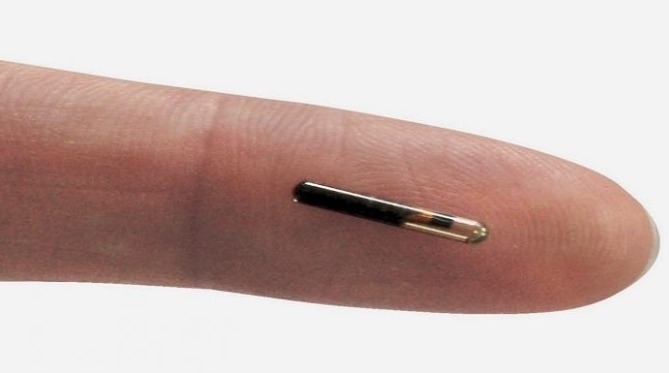Technologies designed specifically to track and monitor human beings have been in development for at least two decades.
In the virtual realm, software programs are now capable of watching us in real time, going so far as to make predictions about our future behaviors and sending alerts to the appropriate monitoring station depending on how a computer algorithm flags your activities. That is in and of itself a scary proposition.
What may be even scarier, however, is what’s happening in the physical realm. According to researches working on human-embedded microchips it’s only a matter of time before these systems achieve widespread acceptance.
“Chances are you’re carrying a couple of RFID microchips now. And if you are, they’re sending out a 15-digit number that identifies you. That number can be picked up by what’s called an ISO compliant scanner. And they’re everywhere, too. […]
“It’s not possible to interact with society in a meaningful way by not having a mobile phone. I think human implants are likely to go along a very similar route. It would be such a disadvantage to not have the implant that it essentially becomes not optional.”
Video Report:
Your initial reaction to this idea may be one of disbelief. There’s no way society would accept such a device. Why would anyone want to implant this in their body?
Consider for a moment where we are right now. For decades Americans rejected the notion that they would submit to being tracked or recorded.
Yet, just about every American now carries a mobile phone. They’re so prevalent, in fact, that many consider it a “right,” prompting the government to actually provide subsidies to those who can’t afford one on their own.


 Flip it!
Flip it!





